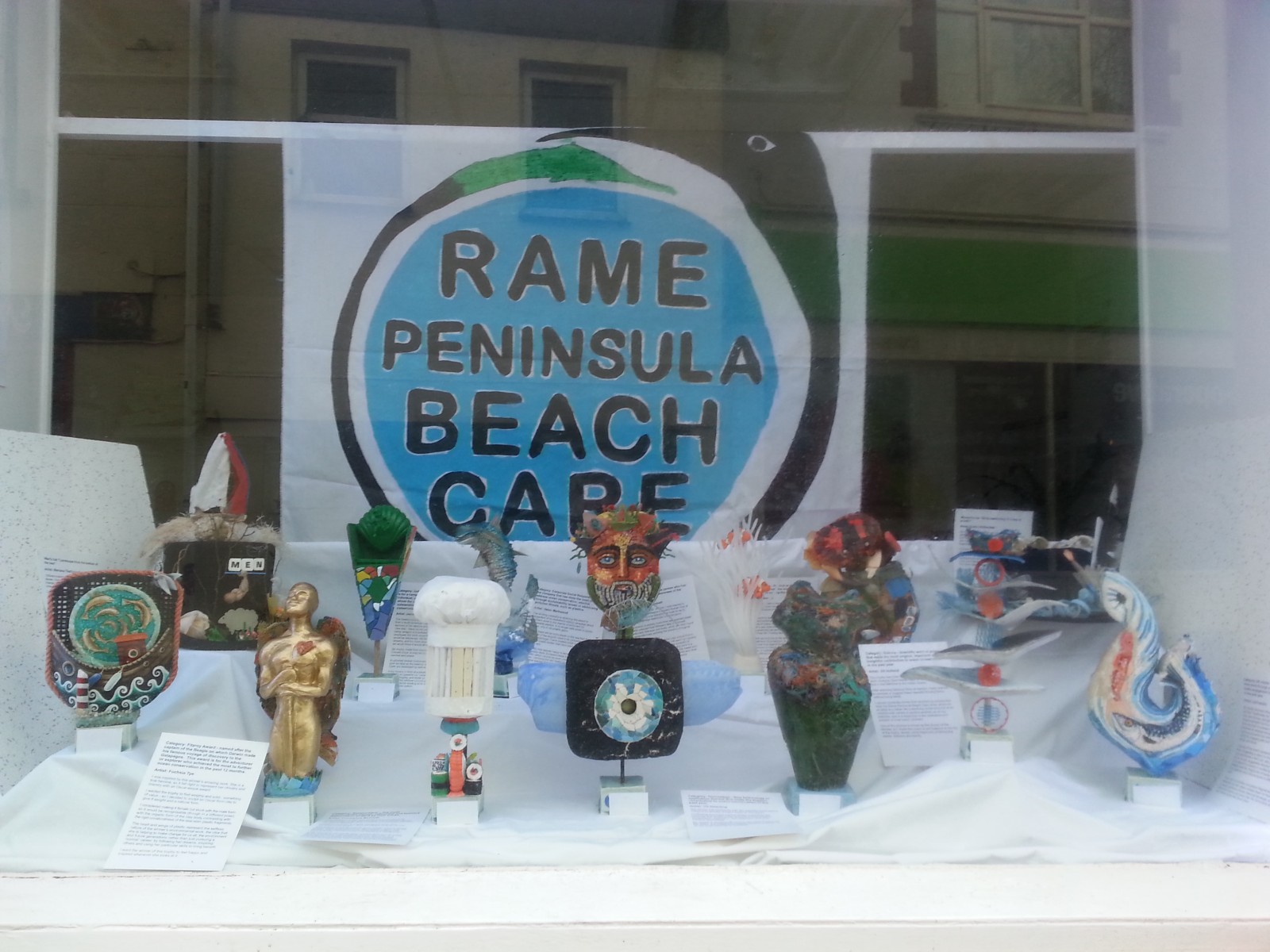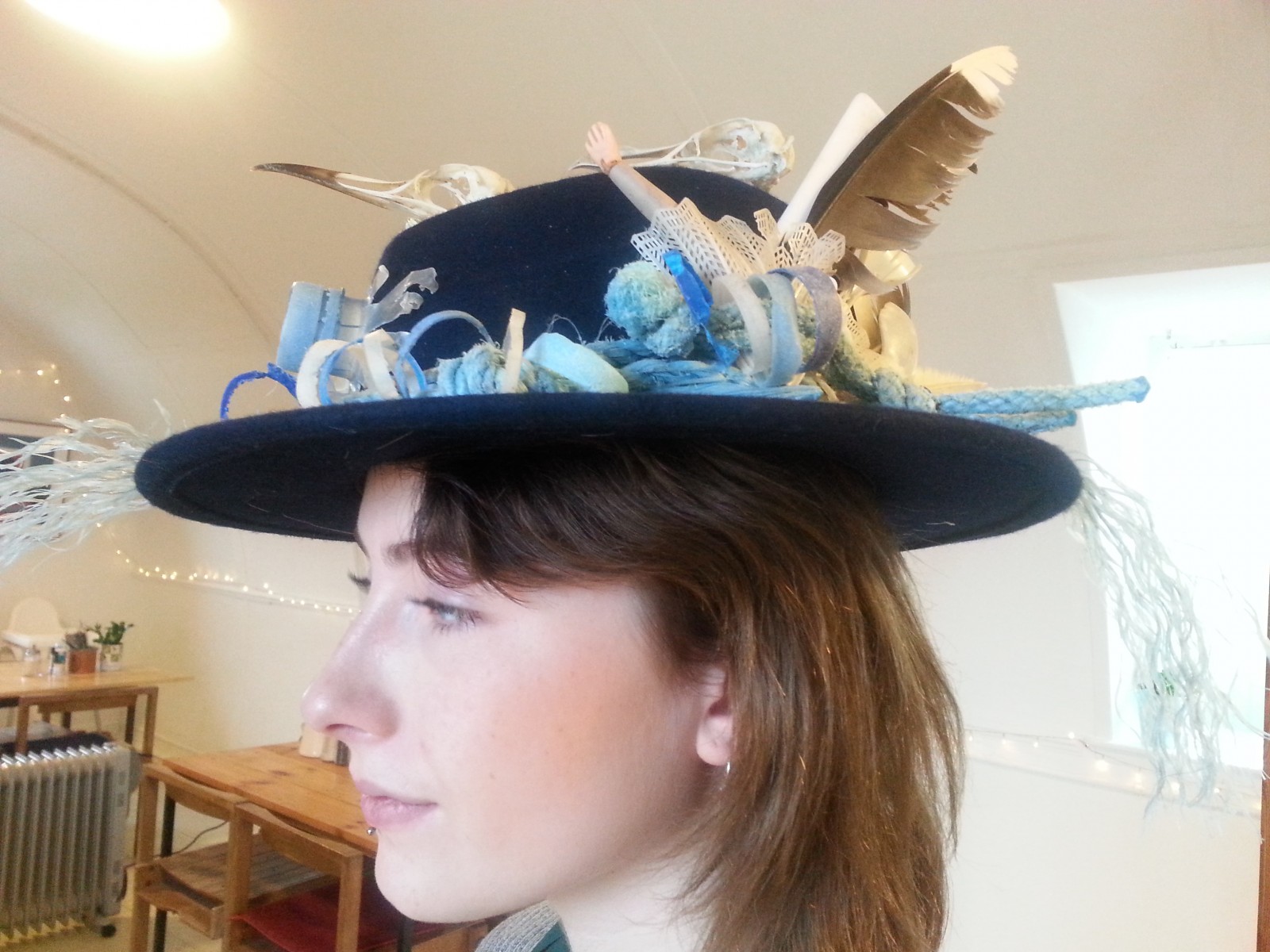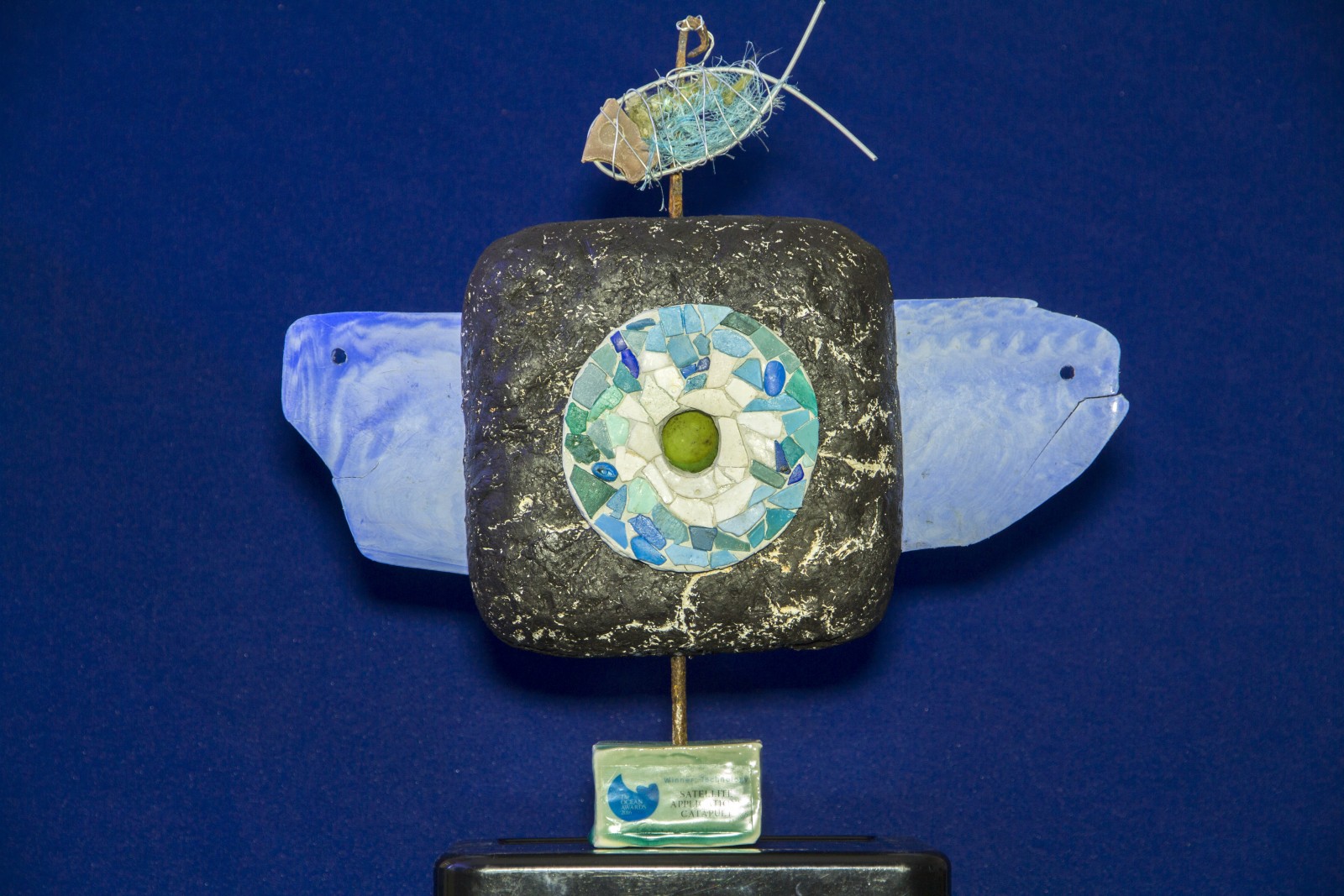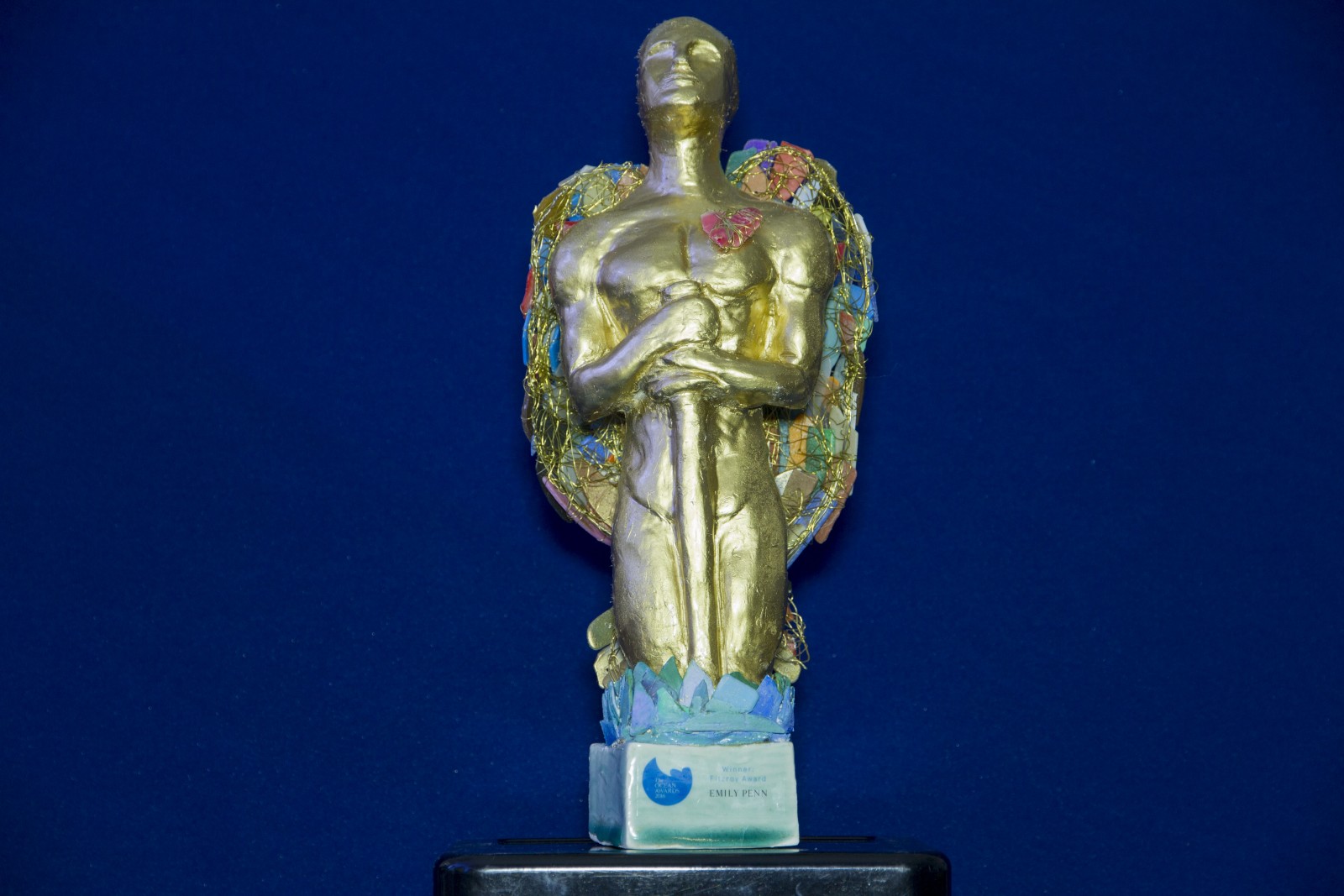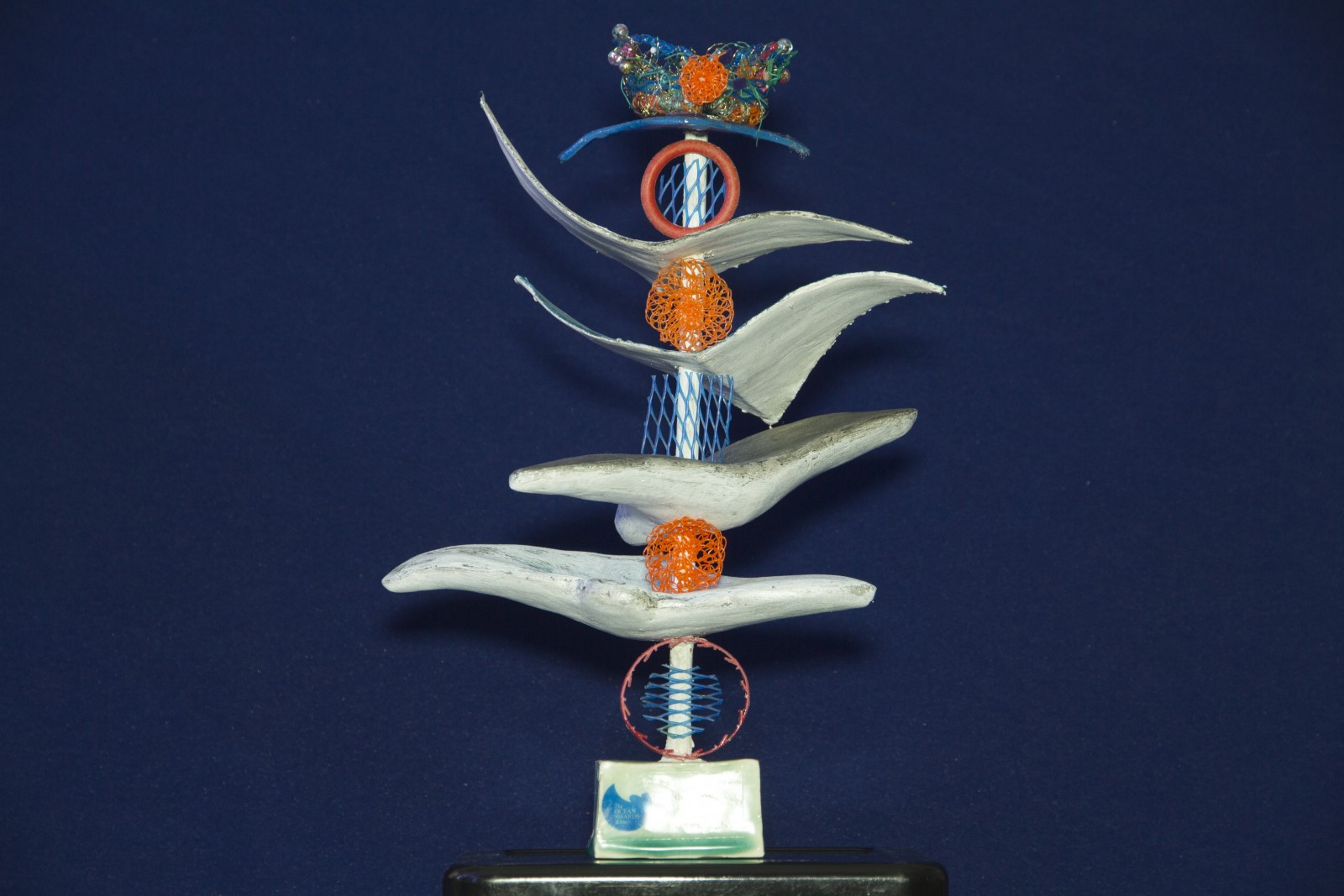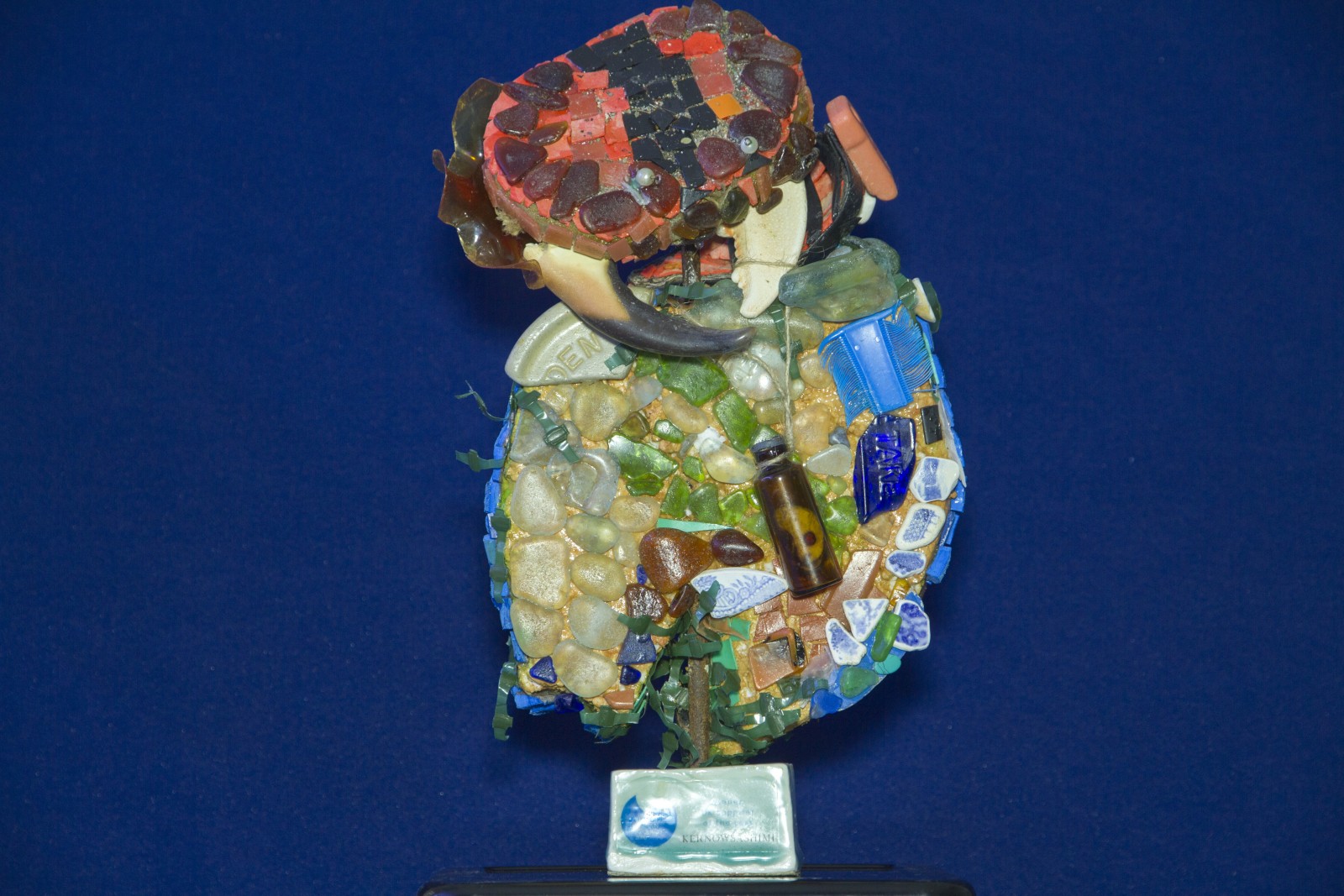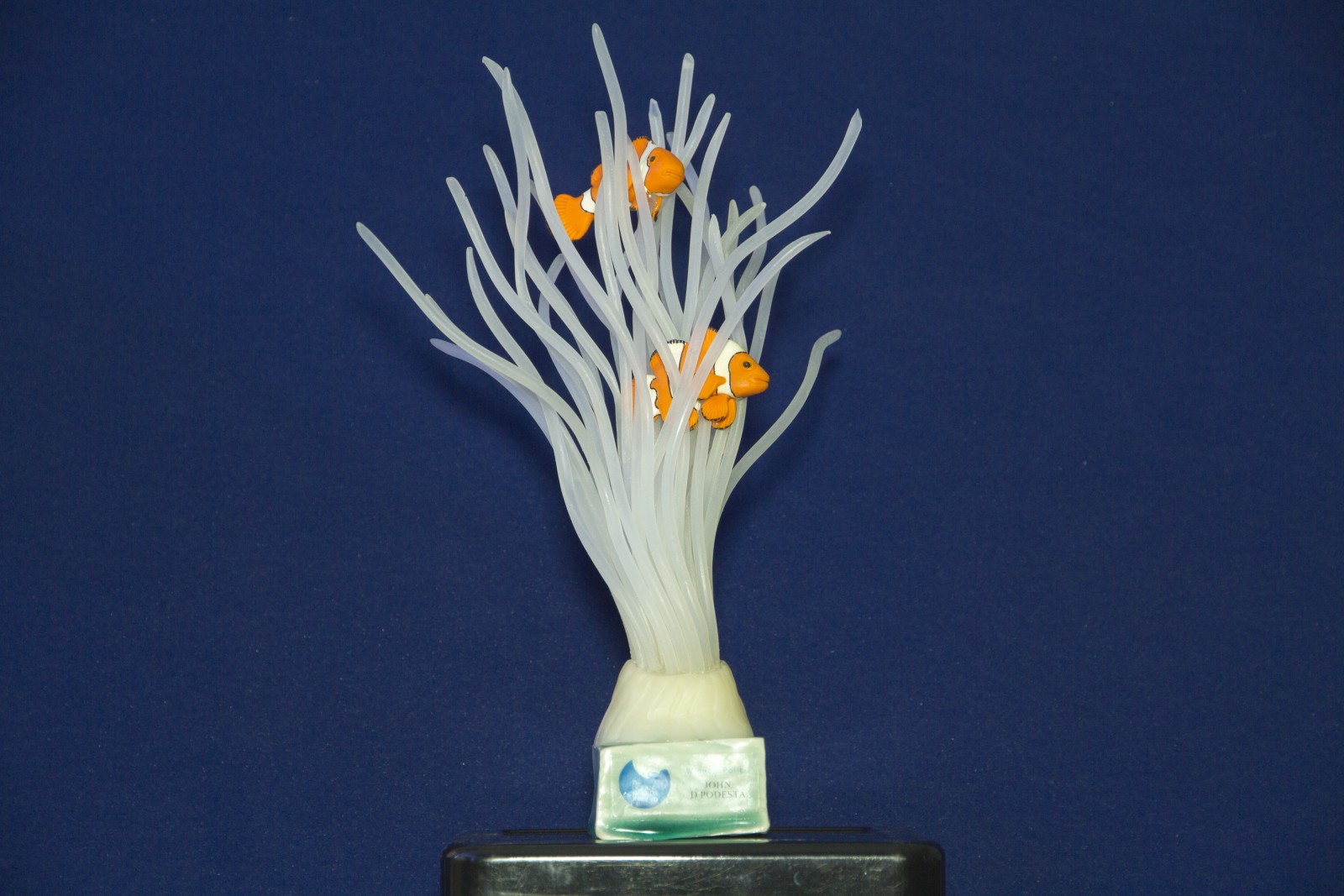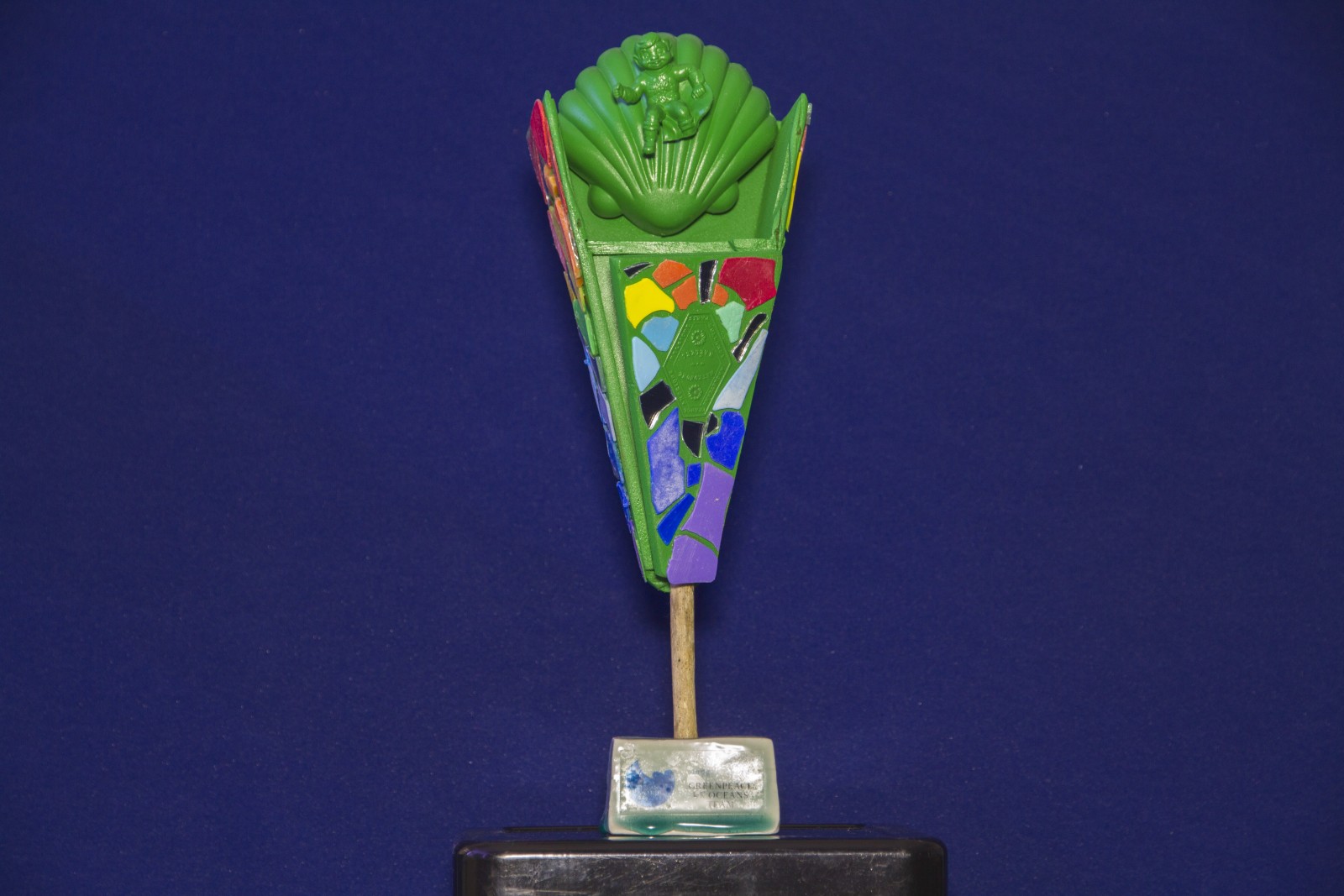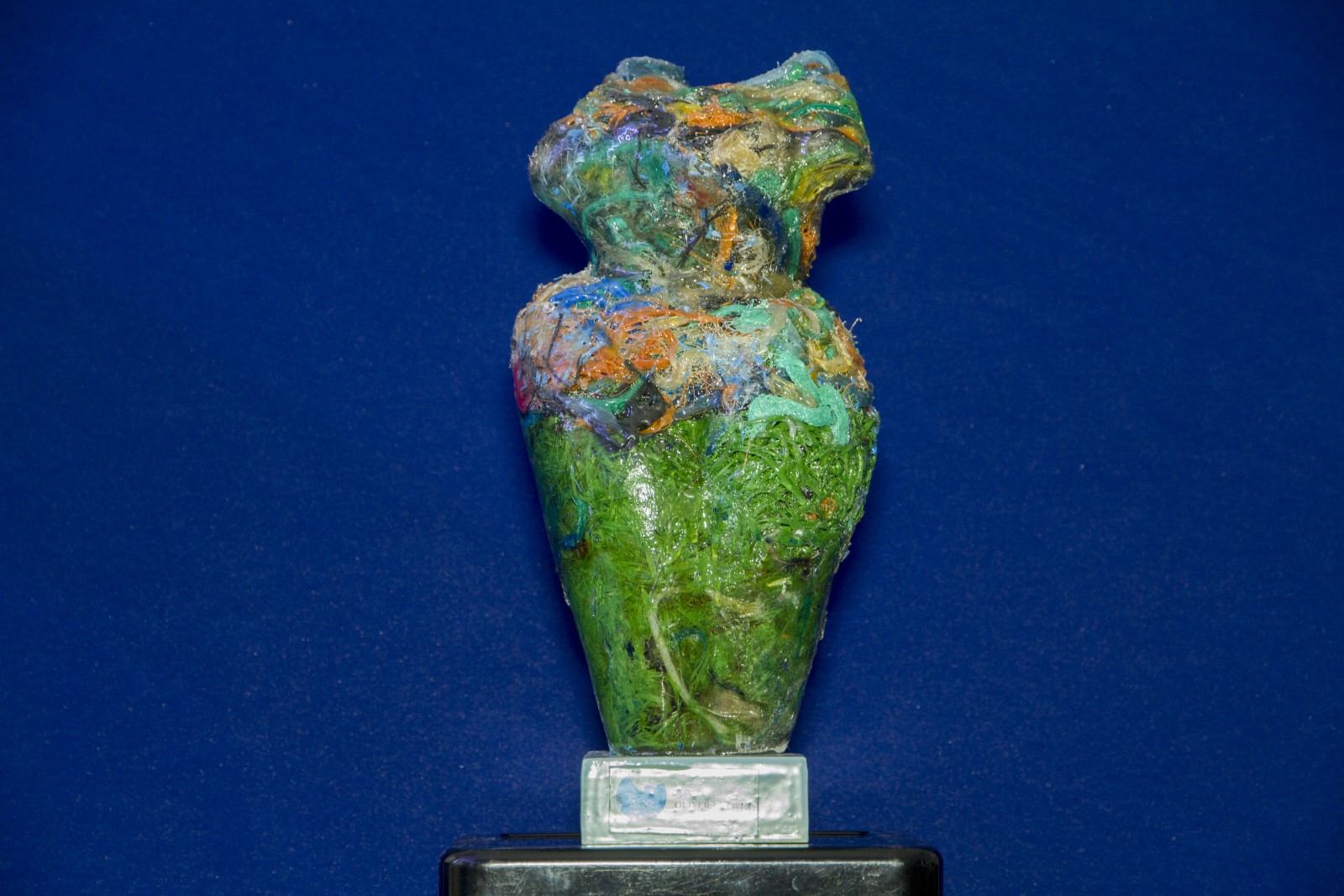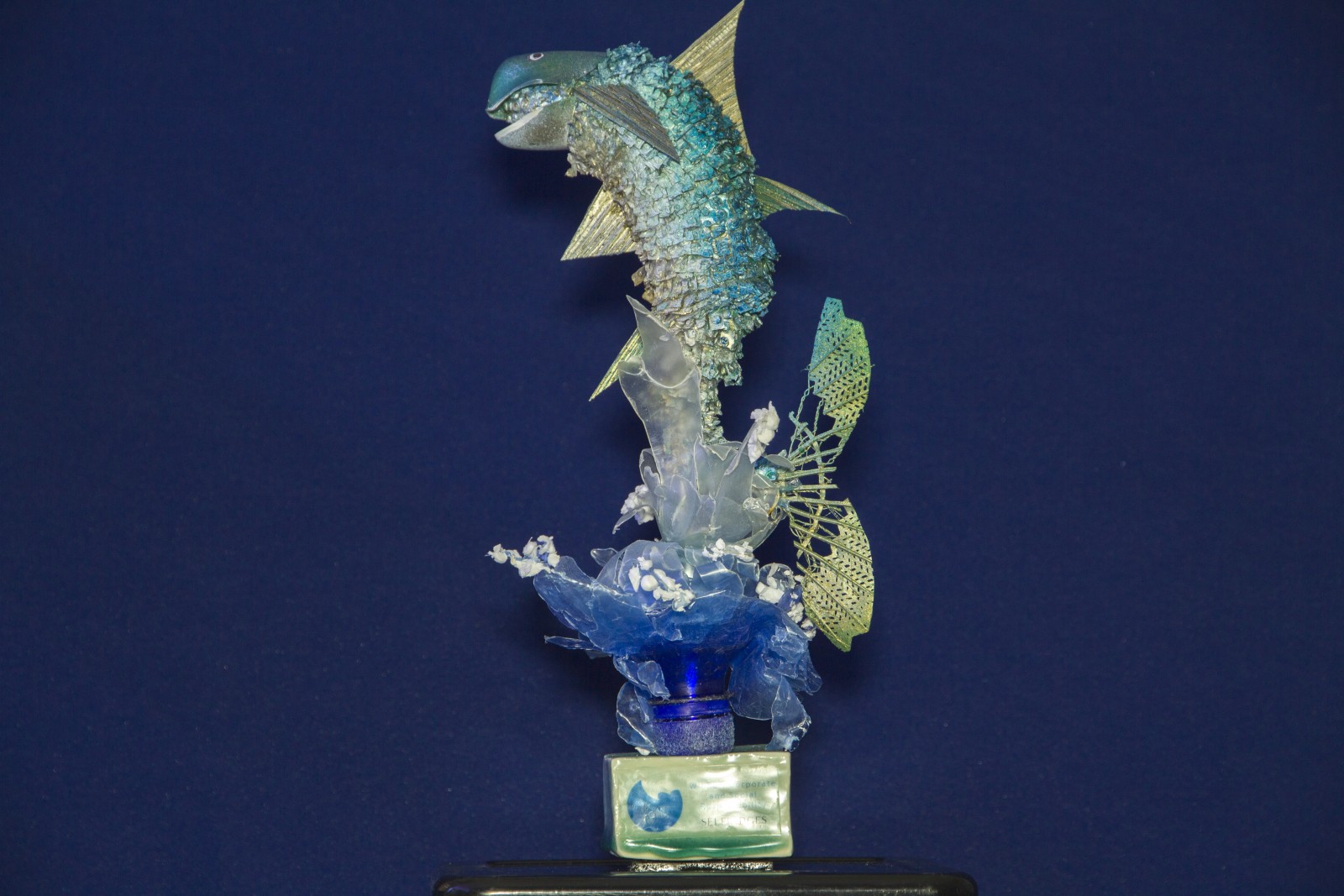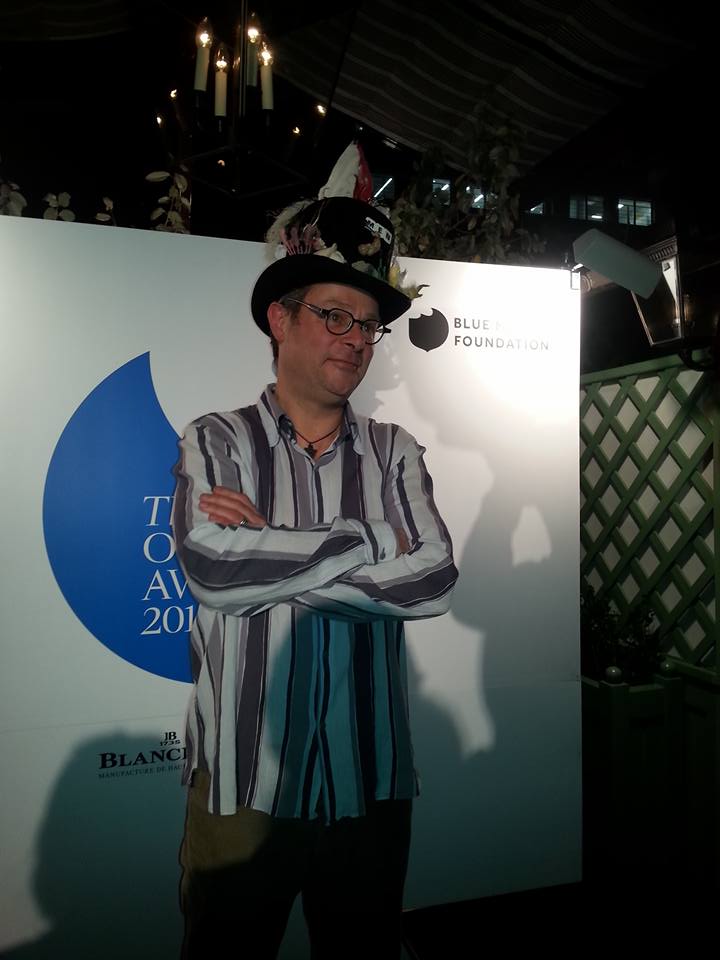Marine conservation 'Oscars'
We were very proud to be asked to produce 12 trophies and 2 hats for the first Ocean Awards, held by the Blue Marine Foundation in London in January 2016, in conjunction with Boat International magazine.
These awards were presented to a range of high profile winners who have made outstanding contributions to ocean conservation over the past year - including Pharrell Williams (for his work with Bionic Yarn - fibre made from recovered marine litter and spun into clothing), Oliver Letwin MP (for his part in setting up the UK's vast 'Blue Belt' of marine protected areas around its overseas territories) and Selfridges (for its Project Ocean campaign, which has seen it stop selling plastic bottled water).
Huge thanks to our fantastic local artists who have worked so hard on this often challenging project and given their time for free - Liz Franklin, Fuchsia Tye, Paul Cardew, Janine Rook, Jill Holland, Jill Downing, Nicola White, Helen Markwood, Rob Arnold, Mariana Lopez, Francesca Bennett and Linda Dunstone. We all hope these extraordinary and unique pieces will really help to raise the profile of the ocean plastic crisis and its impact on the marine environment.
The hats were used as props at the event and proved a big hit among the invitees, including super ethical celebrity chef Hugh Fearnley Whittingstall, who posed to be photographed in them.
All the trophies were made from marine debris collected by our volunteers from the beaches of Whitsand Bay.
THE WINNERS:
Category 1: VISIONARY
Criteria: Politician or thinker who has achieved most for ocean conservation in the past year.
WINNER – Oliver Letwin, Chancellor of the Duchy of Lancaster, for committing the British government to the creation of an MPA around Pitcairn, and to the creation of 'Blue Belts' around the 14 UK Overseas Territories.
Category 2: PROJECTS
Criteria: Ocean project that has achieved the most in the past year.
WINNER – The Scottish White Fish Producers Association, represented by Mike Park, chief executive, for its work to save the North Sea cod, the results of which have been reflected in the improved ICES (International Council for the Exploration of the Sea) stock assessment this year.
Category 3. POLICY
Criteria: Political or corporate policy that has made the most valuable contribution to solving the oceans crisis.
WINNER – John D Podesta, at that time counsellor to the White House, for his part in leading the US National Ocean policy, which included the campaign to expand the Pacific Remote Islands Marine National Monument.
Category 4. PERSONALITY
Criteria: Person in the public eye who has done most to promote awareness of oceans crisis.
WINNER – Pharrell Williams, American singer, rapper, song-writer, record producer and fashion designer, for his role as creative director of Bionic Yarn which uses fibres recycled from plastics washed up on shorelines.
Category 5. SCIENCE
Criteria: Scientific work or paper that made the most original, important or insightful contribution to ocean conservation in the past year.
WINNER – Dr Andrea Marshall and Guy Stevens for research that led to the listing of reef mantas on the Convention of Migratory Species and the Convention on International Trade in Endangered Species.
Category 6. TECHNOLOGY
Criteria: New technology or application thereof that made the biggest contribution to ocean conservation in the past year.
WINNER – Satellite Applications Catapult, represented by Stuart Martin, chief executive, for the creation of its technology system “Project Eyes on the Sea”.
Category 7. FITZROY AWARD
Named after the captain of the Beagle on which Darwin made his famous voyage of discovery to the Galapagos. This award is for the adventurer or explorer who achieved the most to further ocean conservation in the past 12 months.
WINNER – Emily Penn, oceans advocate, skipper and artist, for her expeditions in 2014 and 2015 investigating the amount of plastic in the oceans.
Category 8. RESTAURATEUR/CHEF
Criteria: The restaurant group, chef or restaurateur who has made the most outstanding commitment to ocean conservation.
WINNER – Rob Ruiz, sushi chef, for his campaign to conserve the endangered vaquita porpoise in the Gulf of California and to promote the use of shrimp caught without the use of entangling gillnets.
Category 9. CORPORATE SOCIAL RESPONSIBILITY
Criteria: The company that has done the most to address ocean conservation, whether through sustainability issues or addressing pollution threats, such as plastics.
WINNER – Selfridges, represented by Anne Pitcher, managing director, for their “Project Ocean” initiative which this year removed single-use plastic bottles from its food halls and restaurants.
Category 10. UK SUPPLIER OF THE YEAR
Criteria: The UK seafood supplier which has shown the most consistent, well-communicated and far-reaching commitment to sustainable sourcing.
WINNER – Kernowsashimi, represented by its founder Chris Bean, for its commitment to sustainable fishing methods and fish masterclasses.
Category 11. UK RETAILER
Criteria: The retailer that has done most through corporate policy and/or public engagement to address ocean issues in the past year
WINNER – Marks and Spencer, represented by Paul Willgoss, director of technology, for its “Forever Fish” campaign, part of Plan A 2020.
Category 12. JUDGES' AWARD 2016
Criteria: The Judges' award is for a campaigning group, company or individual, outside of the above categories, whom the judges wish to recognise for their outstanding overall efforts in marine conservation throughout the year.
WINNER – Greenpeace UK Oceans team, represented by Willie Mackenzie, its senior adviser, for their outstanding contribution both to global campaigns and to campaigns in the UK to save important marine habitats, protect endangered species, create marine reserves, and push for important fisheries governance reforms

